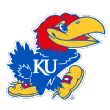The first full day of the NCAA tournament featured eight games decided by single digits, six lower-seeded teams advancing, four double-digit seeds winning, three overtime games and one of the biggest upsets in NCAA tournament history.
And the weekend didn't slow down from there. The Sweet 16, which begins Thursday in San Antonio and San Francisco, features a 15-seed for just the third time in tournament history, as well as four double-digit seeds. Three 1-seeds are still dancing, but one needed overtime to advance and another had to overcome a double-digit deficit in the second round.
So yes, the Madness has lived up to its name.
What will the next two rounds of the NCAA tournament look like? More upsets or top seeds advancing to New Orleans? I reached out to coaches who have faced the four regional favorites to find out which potential opponent poses the biggest challenge -- and much more -- to get you prepared for the Sweet 16.

Gonzaga Bulldogs
Potential pitfall: Gonzaga has already faced both of its potential Elite Eight opponents in Duke and Texas Tech, losing to the Blue Devils and beating the Red Raiders. But Arkansas will a pose a threat in the Sweet 16, too.
Why coaches think Gonzaga is vulnerable: "Arkansas has the athleticism, but they're not that tall. Gonzaga played Texas Tech on a neutral [court] early in the year and won comfortably. Tech pretty much always keeps a weakside defender's head on the rim on any post touches, that's what they did against them in December. That's what they did against Notre Dame the other day. I scouted Gonzaga's game against them in December and [Andrew] Nembhard was terrific, [Drew] Timme and [Chet] Holmgren didn't play great. Which makes it interesting, because that's the focal point of Tech's post defense. They swarm the basketball and make those guys passers.
"The problem will be if Gonzaga's ancillary pieces don't make 3s. So does the athleticism of Arkansas on the perimeter or Texas Tech on the perimeter bother them? That's the biggest question. Duke's so young and you have to be great, great, great defensively to beat Gonzaga. It's hard for me to envision [Duke beating the Zags] because they're not great defensively -- even though they did it already." -- WCC assistant coach

Purdue Boilermakers
Potential pitfall: The winner of UCLA vs. North Carolina, obviously, but the Tar Heels' ability to score could cause issues.
Why coaches think Purdue is vulnerable: "UCLA has more offensive options on the perimeter and I love UCLA's winning DNA, but I lean toward Carolina [as the greater threat]. Purdue has good matchups for Armando Bacot, they have guys to guard him for 40 minutes -- but does that neutralize the offense? R.J. Davis, Caleb Love, Brady Manek; can they get loose against Purdue?
"I don't think Purdue is bad defensively in a big spot. I think they'll be geared up to guard in a game like that. I don't know if you'll see it against Saint Peter's, but in an Elite Eight game ... They have their bigs; they have Mason Gillis, who plays his ass off; [Jaden] Ivey will be motivated to guard. It's really just Sasha [Stefanovic], he's the one [problem]. Ethan Morton will come off the bench and compete. So is Sasha going to have a bad matchup? I think that's really what you're talking about, and I think Carolina has a little more firepower." -- Big Ten assistant coach

Arizona Wildcats
Potential pitfall: Houston is one of the elite offensive rebounding teams in the country, which could pose huge problems for Arizona, while Villanova has the experience and shooting ability to get to a Final Four.
Why coaches think Arizona is vulnerable: "Sometimes the risk isn't worth the reward when it comes to offensive rebounding. They [the Wildcats] are so good in transition offense, are you willing to sacrifice getting an offensive rebound? Because once you get it, are you able to score over [Christian] Koloko, [Azuolas] Tubelis and [Dalen] Terry when you get it? Probably not. But you have to play physical and tough. If you can't play with some sort of physicality against them, you have no chance. Will the referees allow [Houston] to be physical? On offense, it's being able to confuse those guys on their ball-screen coverages. It can't be easy to figure out. You have to slip ball screens, dive ball screens, ghost ball screens and pop your big if he's capable of making shots. You have to keep them off-balance." -- Pac-12 assistant coach

Kansas Jayhawks
Potential pitfall: Providence could provide the stiffest competition, but don't count out Miami in a potential Elite Eight game.
Why coaches think Kansas is vulnerable: "You can get to their bench a little bit, which hasn't always been the norm for them. If they face a pick-and-pop 5, a stretch-5, I think it's hard for [David] McCormack and [Mitch] Lightfoot to get out there and switch ball screens. And as good as [Dajuan] Harris [Jr.] is as a defender, he's not like [Devonte] Graham and [Frank] Mason were there, and he's not banging 3s. He's the one guy you can help off of.
"Miami would definitely give them trouble. They gave Auburn trouble because they pulled Walker Kessler out. I see that kind of game giving them trouble. Look at Texas Tech [against Kansas], Bryson Williams can step out and shoot. It takes away their interior defense that they're typically so good at. It's why Oklahoma was able to stay close -- because they had a stretch-5." -- Big 12 assistant coach
What changed with North Carolina and Michigan?
Back in the preseason, the notion of eventual Sweet 16 appearances for North Carolina and Michigan wouldn't have been considered a surprise. A month ago? That's a different story. The Tar Heels turned things around after a home loss to Pittsburgh in mid-February, but they still lost by 13 to Virginia Tech in the ACC tournament. Michigan backed into the NCAA tournament with a 17-14 record and no sign of consistency.
Now, both teams are 80 minutes from the Final Four. So what happened?
While all three losses looked bad on paper, due to either margin or opponent, North Carolina was actually 12-3 in its last 15 games entering the NCAA tournament. So the Tar Heels had been playing better over the past two months -- but the defense turned up a level over their past two games, holding Marquette to 0.84 points per possession and Baylor below 1.00 point per possession.
"They made a more intentionally focused effort on the defensive end," one ACC coach said. "In mid-January, they lost to Miami and Wake Forest in back-to-back games and gave up 85 and 98 points. And it really turned when they got embarrassed at home to Duke and when they lost at home to Pitt. The Pitt one to me, that was 'we're either going to sink or swim, it's do or die.' They had their backs against the wall and they responded. I think they're buying in. They might have done some [different] stuff schematically, but it's an effort thing. When the effort matches the size and athleticism, they have the ability to be a good defensive team."
At the other end of the floor, Caleb Love and R.J. Davis have stepped up in big spots and Brady Manek has been terrific. Love had 23 points in the first-round win over Marquette and had scored at least 20 points in each of Carolina's wins over NCAA tournament teams this season before the Baylor game, while Davis had 30 points and six assists against the Bears. Manek is averaging 27.0 points in the tournament and has hit 20 points in five of his past six games.
"Offensively, Manek causes problems," an ACC assistant said. "He's such an efficient shot-maker. He can really give you trouble and spread you out, especially when the guards are going. That's the thing. The first game it was Love and then it was R.J. Davis. Manek has been pretty consistent for the most part. It's those guards, man. When those guards play like they're capable of playing, or at least one of them, that's huge. Because there's so much focus on [Armando] Bacot, when those guys aren't making shots, you can take him away. Manek, Davis and Love can keep you honest and allow Bacot to play one-on-one."
Michigan had two of its best defensive games in months and also showed some consistency on the offensive end, despite missing point guard DeVante' Jones for the first-round game against Colorado State. Frankie Collins stepped in for Jones and was terrific, finishing with 14 points and six rebounds and sparking the second-half turnaround. But one Big Ten coach who watched both games said the biggest key was Michigan opting to run its offense through Hunter Dickinson.
"I think the big thing going into it, they were really trying to play through Hunter," he said. "It wasn't, 'Your turn, my turn, let's get Caleb Houstan a shot, let's run a ball screen for DeVante' Jones.' It was, 'We have a monster in the middle, let's throw him the ball, he's impossible to double. We're just going to continue to pound the ball inside to Hunter and throw it to him every possession.' They're running a lot of the same stuff, same sets, but the emphasis on getting Hunter the ball is a little bit more evident."
Dickinson has responded to the tune of 24.0 points, 8.5 rebounds, 2.5 assists, 2.5 blocks in the two games, while also making three 3-pointers.
"It makes it really hard to guard them -- just because he does pass so well," a Big Ten assistant said. "He's bigger than whatever guy you're going to guard him with, and he can step out and shoot. If you double him, he'll find other guys. They have a bunch of solid-to-good players, and he picks all of them up. Because they're getting good looks for Houstan, and DeVante' Jones gets open drives and cuts. He helps everybody be a little bit better."
Improved point guard play for Duke, Kansas
Duke and Kansas each had a tough go of it in the second round, with the Blue Devils needing to erase a late five-point Michigan State lead and the Jayhawks holding off Creighton late. And both teams are getting a nice boost from the point guard position, from two players who haven't really found their groove all season.
Jeremy Roach moved from the starting lineup to the bench in mid-February, but he provided good offensive pop down the stretch of the season and fought his way back into Duke's starting lineup for the NCAA tournament. In the first round, he had 12 points and five assists against CSU Fullerton, and then went for 15 points and three assists in the win over Michigan State. He hit multiple big shots late against the Spartans when Duke's offense looked bogged down.
"Their pace is a little bit better because he's a natural point guard and while the big lineup has its advantages, sometimes you need that natural point guard out there that can push the ball, get the ball where it needs to go, get them into offense," one ACC coach said. "He's not a huge assist guy, but I think the pace is a little bit more natural. And he's been scoring. He's also 8-for-22 from 3 since the Syracuse game, 9-for-23 since the last game of the year against North Carolina."
Meanwhile, Kansas guard Remy Martin has been playing the way we all expected back in the preseason. Martin, a two-time first-team All-Pac-12 selection at Arizona State, was supposed to be the missing piece for Bill Self and the Jayhawks -- but injuries have made him mostly a nonfactor for the second half of the season. Over the past four games, though, Martin has been fantastic, averaging 14.3 points, 3.8 rebounds and 3.8 assists -- including going for 20 points, 7 rebounds and 4 assists in the win over Creighton.
"Early on, they didn't have that spark off the bench," one Big 12 assistant said. "If he's playing well, now they have a change of pace. He can come and score more than Dajuan [Harris Jr.] He doesn't give you the same defensive prowess, but his scoring on the perimeter makes them better. Those two wings are as good as anyone in the country in [Ochai] Agbaji and [Christian] Braun. Those two don't shot-hunt either, they pick their spots. Now if you have Remy playing well, as a threat on the perimeter, [David] McCormack as a load in the post to guard one-on-one, now it gives them a chance to win a national title."
Can Saint Peter's keep winning?
Saint Peter's has been the story of the NCAA tournament, pulling off a stunning upset of 2-seed Kentucky in the first round and then knocking off Murray State in the second round -- and not only did the Peacocks beat the Racers, they never once trailed. It was a remarkably impressive weekend for Shaheen Holloway's team.
So is it lightning in a bottle? Catching fire for one weekend? Just playing the way they have all season? According to MAAC coaches, it's a little bit of everything.
But one thing is clear: Saint Peter's hasn't changed its identity whatsoever.
"They're tough, they're physical, they're disciplined and they really defend," a MAAC head coach said. "When you defend in the postseason and in March, it gives you a chance. They were the lowest-scoring defense in our league. They make you feel them. Every time you catch it, every time you drive the ball. They've got length. They never quit on a play."
The Peacocks have been at their best late in games, consistently making free throws and big shots to keep Kentucky and Murray State at bay -- they also outscored Kentucky 9-3 down the stretch of regulation and 14-4 in the final minutes of overtime. One MAAC coach said that wasn't unusual; the Saint Peter's guards play with such confidence and freedom, it helps them in late-game situations.
"They're staying true to their identity," another coach said. "I don't know their numbers for close games, but there are a lot of close games in the MAAC and those guys have been together for multiple years. That core group has been together for the three years Sha has been there. Those guys have a lot of experience, they've grown up together. There's a mental toughness about them. They're fearless with the way they compete."
The backcourt duo of Doug Edert and Daryl Banks III has been the catalyst for Saint Peter's. Edert had 20 points against Kentucky -- making both of his 3s and all eight of his free throws -- while Banks went for 27 points and five 3-pointers against the Wildcats.
"Edert is doing exactly what he's done the last couple of years. He's a terrific shooter that moves well without the basketball. He's a guy that plays with great confidence," a coach said. "If he hasn't made one, he's dangerous because you know he can make them at a high level. And if he's made a couple, you know it's going up. He poses a threat because he has the ability to shoot every shot like it's going in. And Banks has a tremendous demeanor. He can really score the ball at three levels. Get the ball to the rim, midrange off ball screens, shoot from 3."
While Purdue is the heavy favorite in the Sweet 16 matchup, at least one MAAC coach isn't counting out the Peacocks.
"They're playing really well," he said. "When you can play defense and continue to believe, there's always a chance."
Miami vs. Iowa State: Which double-digit seed will be 40 minutes from New Orleans?
At least one double-digit seed is guaranteed to advance to the Elite Eight, as 10-seed Miami will face 11-seed Iowa State in the bottom half of the Midwest bracket.
Both teams have shown their potential on a number of occasions this season, with Miami owning wins over Duke and Auburn and Iowa State beating Texas Tech, Wisconsin and Iowa this season. Which team has a better chance of making the Final Four?
That will likely come down to the battle between Miami's elite perimeter group of Charlie Moore, Isaiah Wong and Kameron McGusty and Iowa State's high-level defensive backcourt of Tyrese Hunter, Izaiah Brockington and Gabe Kalscheur.
For Miami, Moore, Wong and McGusty combine to average nearly 46 points and 9 assists per game, and all three are comfortable taking big shots late in games.
"They are always in attack mode and they do a tremendous job of playing together. It's a three-headed monster and they're not fighting each other for shots," one ACC coach said. "They are perfectly comfortable with other guys having the spotlight. All three seem like-minded. All three are trying to win because they're older, they have confidence in each other, they don't care whose night it is. But they're as good a backcourt as there is in the NCAA tournament. They've been through it. Nothing fazes them. They've been in every possible situation you can be in."
It's not just on the offensive end, either. Led by those three guards, the Hurricanes are aggressive defensively and ranked first in the ACC in defensive turnover percentage and steal percentage. Opponents in league play turned it over on more than 21% of possessions. Against Auburn, Miami outscored the Tigers in fast-break points, 30-1.
"Because they're so good offensively, it makes their defense better. They have 'score pressure,'" one coach said. "Because they're going to score and put pressure on you to defend. You score and they get it out. That makes them better defensively. I felt we had to score because they're going to be hard to stop. Iowa State is the ultimate contrast of styles. With those Miami guards and as much freedom that they play with, they don't turn it over. They're sixth in the country. Wisconsin was second in the country, but they turned it over 17 times against Iowa State."
One X factor in the frontcourt for Miami is New Zealand native Sam Waardenburg, a 6-foot-10 big man who shoots 42% from 3 but has also held his own defensively against the likes of Walker Kessler and Mark Williams.
"Waardenburg does create mismatch problems," an ACC coach said. "Teams have tried to guard him with the 4. Auburn tried to guard [Jordan] Miller with the 5. But Waardenburg creates problems because he can scratch the floor. You've got the three guards and then he's the fourth guy because he can make you pay. He can facilitate offense from the middle of the floor. And I'll tell you what else he does. Defensively, they're so quick and active and aggressive. They've been better than their numbers say defensively. All year. They create problems. And Waardenburg is an elite hedger. He can get out there on pick-and-roll and move his feet. They cause you all sorts of problems. They're so disruptive defensively."
On the other side, Iowa State is an elite defensive team and one of the best teams in the country at forcing turnovers. The Cyclones rank No. 5 nationally in adjusted defensive efficiency at KenPom, while also slotting in at No. 4 nationally in defensive turnover percentage -- with opponents coughing it up on nearly a quarter of their possessions.
"It's their size and length," a Big 12 coach said. "Their point guard's [long], Brockington is big, the kid from Minnesota, Kalscheur, plays with toughness. He's strong, he's a grown man. The kid from Washington State, [Aljaz] Kunc, he's got long arms and he's big. And the two post players know who they are, they protect the rim and rebound. They're very good in ball-screen coverage. And they're hard to score on in the post. They double and scramble."
One Big 12 assistant also thinks Waardenburg could be a huge key for Miami at the offensive end.
"Iowa State drops to the post to protect the paint, so if you have the ability to use a pick-and-pop 5, it puts their defense to make an adjustment. That's how teams get them," he said. "They drop their bigs, they ice ball screens, they keep the ball on the sideline. And their big stays down, so if you can get a pick-and-pop 5, a skilled 5, it could pose some issues for them. But they play hard, they know what keeps them on the floor is defense, they play with [coach TJ Otzelberger's] kind of emotion."
The big question with Iowa State is its inability to score consistently. LSU and Wisconsin scored a combined 103 points in the first two rounds against the Cyclones, but can they win if the game is a bit more high-scoring? Iowa State scored fewer than 0.95 points per possession in Big 12 play, and in two of its final three pre-NCAA tournament games, the Cyclones scored below 0.60 points per possession. That's objectively awful.
A coach who faced them twice this season thinks they can compete offensively, though.
"For them to win on Sunday, when Brockington went 4-15 -- there's games you watch and he doesn't miss a shot. Everyone scouts to stop him," he said. "If Hunter and Brockington get going like they're capable of, if the kid Kalscheur makes 3s, they're hard to guard. They run that offense at a high pace. I watched them against Texas Tech in the Big 12 tournament, they were a shell of themselves. They looked slow. Now in the tournament, they got back on track."
